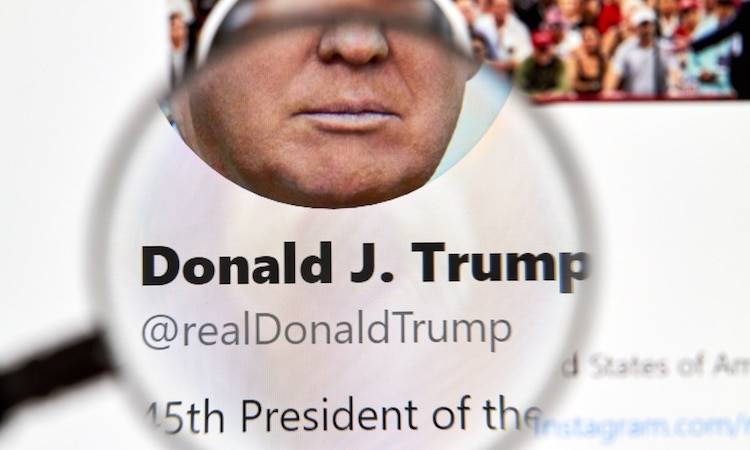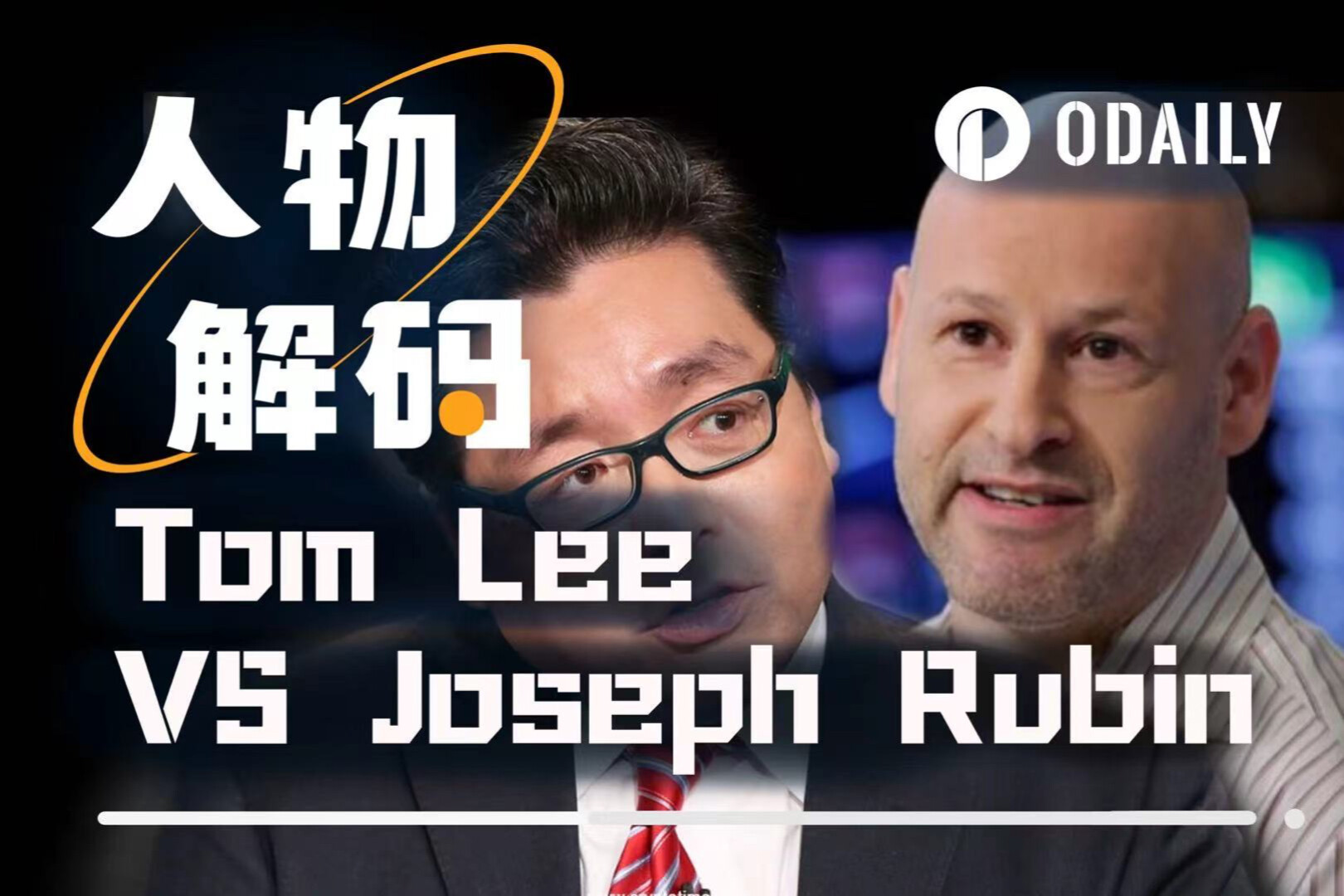Editor's Note: This article comes fromBabbitt Information (ID: bitcoin8btc)Editor's Note: This article comes from

Babbitt Information (ID: bitcoin8btc)
Babbitt Information (ID: bitcoin8btc)
This month, Twitter CEO Jack Dorsey publicly debated whether Twitter was wielding too much power by deleting Trump's account. In Dorsey's view, the solution to this power imbalance may be a new technology inspired by Bitcoin.
They're all trying to replace some of the basic building blocks of the internet in ways that tech giants like Facebook and Google find hard to control.
To do this, these alternative applications have increasingly focused on the new technological ideas introduced by Bitcoin, built on top of the most basic online networks designed to decentralize power.
After YouTube and Facebook banned tens of thousands of Trump supporters and white supremacists this month, many flocked to alternative apps like LBRY, Minds and Sessions. What these sites have in common is that they are all inspired by the design of Bitcoin.
They're all trying to replace some of the basic building blocks of the internet in ways that tech giants like Facebook and Google find hard to control.
To do this, these alternative applications have increasingly focused on the new technological ideas introduced by Bitcoin, built on top of the most basic online networks designed to decentralize power.
Unlike other types of digital currencies, bitcoins are not created and moved by a central bank or financial institution, but by an extensive and decentralized network of computers. This is similar to how Wikipedia is edited, where anyone can edit an entry, rather than a single publisher. This underlying technology is called blockchain, and all Bitcoin records are kept on its blockchain ledger.
Several startups are finding ways to use blockchain and similar technologies to create social media networks, store online content, and host websites without any central authority. In doing so, it makes it very difficult for any government or company to ban a user's account or remove the content in question.
These experiments have taken on new meaning after the tech giants recently exercised their privilege with a thunderbolt.
Immediately after the riots at the U.S. Capitol on Jan. 6, Facebook and Twitter blocked Trump's online post, saying it violated rules on inciting violence. And Amazon, Apple and Google have stopped working with the social networking site Parler, saying the app doesn't do enough to limit violent content.
While liberals and opponents of harmful content have praised the tech giants for their actions, they have drawn criticism from conservatives, First Amendment scholars and the American Civil Liberties Union, which means private entities can decide who gets online. Who can not access the Internet.
In this regard, LBRY founder Jeremy Kauffman said:
"Even if you agree with specific decisions, I can no longer trust those who make them to make generally correct decisions."
And this incident has prompted people to scramble to find other alternatives. So far, dozens of startups have offered alternatives to tech giants like Facebook, Twitter, YouTube and Amazon, all on decentralized networks and shared ledgers. Many of the alternative sites have gained millions of new users in the past few weeks, according to data firm SameWeb.
Data scientist Emmi Bevensee commented:
"This is the biggest wave I've seen, and it's been discussed in niche communities, but now we're having conversations with the wider world about how these emerging technologies are impacting the world on a pretty massive scale."
Bitcoin was born in 2009 by an anonymous figure named Satoshi Nakamoto, and the central idea of Bitcoin is to allow anyone to open a digital bank account and control their own funds.
In its early days, bitcoin attracted little attention beyond a small group of online admirers and people looking to buy illegal drugs online, but as its price has risen, more people in Silicon Valley have taken notice of the cryptocurrency. the technology behind it. Some believe the technology could be used to redesign everything from product tracking to online gaming.
These products failed to gain acceptance for a long time as the underlying technology of Bitcoin proved to be slow, error-prone and inaccessible, but improvements, and more investment, have begun to produce some software that people can actually use.
Arweave, a blockchain-based permanent storage project, stored some very sensitive files last year.
Minds, a blockchain app launched in 2015 to replace Facebook, has also become an online home for some right-wing figures and neo-Nazis who, along with fringe groups in other countries, have been targeted by governments. And Minds, and other startups like it, have been backed by big-name VCs like Andreessen Horowitz and Union Square Ventures.
Dorsey, 44, is one of the biggest proponents of the trend, speaking of the promise of a decentralized social network through Twitter and popularizing bitcoin through Square, another company he runs.
Dorsey’s public support for Bitcoin and Bitcoin-related designs dates back to around 2017. At the end of 2019, Dorsey also announced the "Blue Sky" project, which aims to reduce the power of the Twitter company.
After shutting down Trump's account this month, Dorsey said he would hire a team to address decentralization for Blue Sky. Twitter declined to make Dorsey available for an interview, but said it intends to share progress soon.
For those looking for an alternative to the tech giants, blockchain is not the only solution. In recent times, many people have migrated to Signal and Telegram, encrypted messaging apps that do not require a blockchain. Signal creator Moxie Marlinspike has said that decentralization makes it difficult to build good software.
Still, experimentation with decentralized systems has seen a lot of growth over the past month. Web 3 browser application Brave announced last week that it will integrate the IPFS system in its software to make web content more reliable in case a large service provider goes out of business or tries to ban its website.
Brave co-founder Brian Bondy commented:
"The IPFS network allows people to access content even when it is censored by companies and countries."
LBRY, the developer of a blockchain-based app designed to replace YouTube, said daily registrations to its site jumped 250% this month from December, and new users appear to be mainly Trump fans. White supremacists and people who break YouTube rules.
Last week, when YouTube removed the latest video from the white supremacist vlog Way of the World, its owner tweeted:
"Why are we wasting time on this globalist scum? Come on LBRY and watch all my videos in HD quality, no censorship at all!"
Megan Squires, a professor at Elon University who studies new computer networks, warned that blockchain-based networks generally face obstacles because the underlying technology makes it difficult for them to exercise any control over content.
She said:



